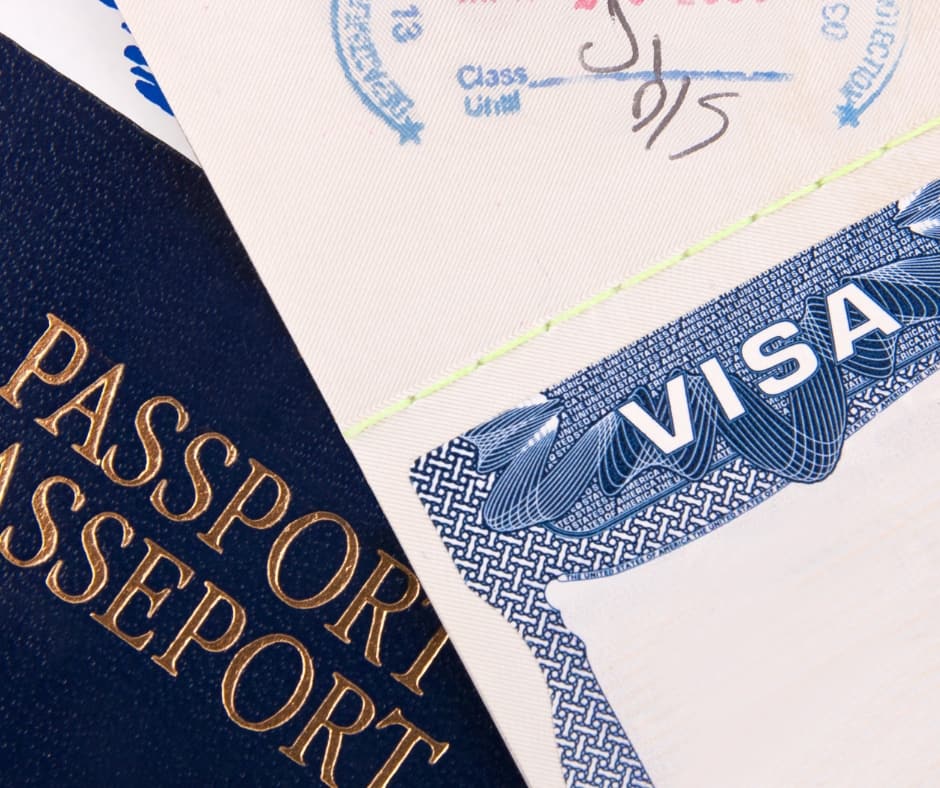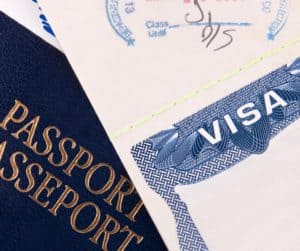Travel Visas and Immigration Requirements

Travel Visas and Immigration Requirements: A Digital Nomads Guide
Welcome to a comprehensive guide that will navigate you through the intricate world of travel visas and immigration requirements. As we embark on our nomadic adventures, it’s essential to understand the legal aspects that govern our ability to live, work, and explore various countries. In this guide, we’ll delve into the intricacies of travel visas, entry permits, and the necessary documents needed to ensure a smooth journey.
So, let’s dive right in and unravel the mysteries of international travel regulations!
1: Understanding Travel Visas
Travel visas are official documents issued by a foreign country that grant you permission to enter and stay within its borders for a specific period. Different countries have varying visa policies, ranging from visa-free entry to strict visa requirements. It’s crucial to research and understand the specific visa regulations of your desired destination well in advance of your travels. Some countries may require you to obtain a visa before your departure. While others offer visa-on-arrival or even visa-free access.
To determine the visa requirements for your destination, visit the official website of the country’s embassy or consulate in your home country. These websites usually provide comprehensive information regarding visa types, application procedures, and any additional documentation necessary for approval. Make sure to carefully review the visa categories available and choose the one that best suits your purpose of travel, whether it’s tourism, business, or work.
2: Short-Term Visas
Short-term visas are ideal for digital nomads who plan to visit a country for a limited period. These typically range from a few days to a few months. These visas often fall under the categories of tourist visas, business visas, or visitor visas. While the exact requirements may differ, you will generally need to provide proof of travel arrangements, accommodation reservations, and sufficient financial means to support your stay. Some countries may also request proof of travel insurance coverage and a return ticket.
Short-term visas usually have limitations on the duration of stay, typically ranging from 30 to 90 days. It’s essential to adhere to these restrictions to avoid any legal complications or overstaying penalties. If you wish to extend your stay beyond the permitted duration, consult the local immigration authorities or embassy for information on visa extensions or alternative visa options.
3: Long-Term Visas
For digital nomads seeking to settle in a particular country for an extended period, long-term visas or residence permits become necessary. These visas are designed to accommodate individuals who plan to work, study, or retire in a foreign country. Long-term visas often require a more extensive application process. These involve background checks, medical examinations, and proof of financial stability.
To obtain a long-term visa, you may need to provide additional documentation, such as a criminal record check, proof of employment or income, and a detailed explanation of your purpose for residing in the country. Each country sets its own criteria and eligibility requirements for long-term visas, so it’s crucial to thoroughly research and prepare the necessary documents well in advance.
4: Work Visas and Permits
Digital nomads who intend to engage in employment while abroad will likely require a work visa or permit. These documents grant legal authorization to work in a specific country. They are typically issued based on a job offer or sponsorship from a local employer. Work visas often necessitate the involvement of the employing company. They may be required to provide proof of your qualifications, job description, and the need for a foreign employee.
The application process for work visas can be more complex and time-consuming than other visa types. It may involve submitting detailed employment contracts, educational certificates, and evidence of professional experience. Additionally, some countries impose quotas or prioritize local job seekers. This makes it essential to check the specific regulations and requirements of your desired work destination.
5: Digital Nomad-Specific Visas
In recent years, several countries have recognized the growing trend of digital nomadism and have introduced specialized visas catering to this lifestyle. These digital nomad-specific visas aim to attract remote workers and entrepreneurs by providing them with the opportunity to live and work legally within their borders.
Digital nomad visas often have specific eligibility criteria, such as proof of self-employment, a minimum monthly income threshold, or a commitment to work for a specific period. These visas grant digital nomads the flexibility to work remotely while immersing themselves in a new culture and environment. Some popular destinations offering digital nomad visas include Estonia, Barbados, and Costa Rica.
6: Visa Renewals and Extensions
For digital nomads planning to stay in a country beyond the initial visa validity, understanding the process of visa renewals and extensions is crucial. Renewing a visa allows you to stay in a country continuously, while extensions grant you additional time beyond the initial visa duration.
The procedures for renewing or extending a visa can vary significantly from country to country. It’s advisable to consult with local immigration authorities or seek legal assistance to ensure compliance with the specific requirements. Remember to start the renewal or extension process well in advance to allow for any potential delays or additional documentation requests.
7: Navigating Immigration Requirements
Beyond travel visas, digital nomads must also be aware of immigration requirements imposed by different countries. Immigration requirements pertain to the regulations governing the entry, stay, and exit processes. These requirements may include customs declarations, health screenings, biometric data collection, and compliance with local laws and regulations.
It’s crucial to familiarize yourself with the immigration requirements of your destination country to ensure a hassle-free entry and stay. Be prepared to present necessary documentation, such as a valid passport, travel insurance, proof of accommodation, and sufficient financial means. Additionally, familiarize yourself with local customs and laws to avoid any unintentional violations that could result in legal consequences.
Conclusion
As digital nomads, understanding travel visas and immigration requirements is paramount to our nomadic lifestyle. By delving into the intricacies of various visa types, we can ensure smooth and legal transitions between countries, allowing us to focus on our work and exploration. Remember to thoroughly research the specific visa regulations of your desired destinations, seek guidance when necessary, and embrace the exciting opportunities that await us in this globally connected world.
Related Articles

Create a Digital Nomad Budget and Manage Your Finances on the Road
A nomadic lifestyle can be challenging. Here’s an in-depth guide on how to create a digital nomad budget and manage your finances.

Digital Nomad Tax Guide: Navigating Taxes While Living and Working Abroad
We provide you with essential knowledge through this digital nomad tax guide to navigate it’s complex terrain confidently.

Travel Visas and Immigration Requirements: A Digital Nomads Guide
Welcome to a comprehensive guide that will navigate you through the intricate world of travel visas and immigration requirements.
